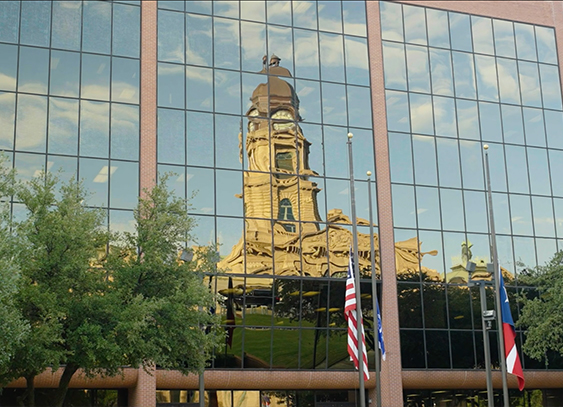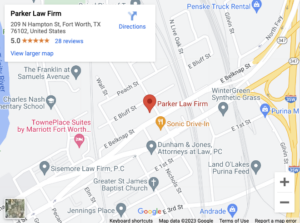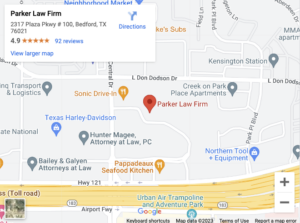
Chest injuries can involve anything from minor bruising to severe trauma, and they usually need careful medical attention because of all the vital organs located in that area. They’re alarmingly common and can happen in almost any situation, including car accidents, falls, and sports injuries.
Anyone can take an injury to the chest at any time. For residents of Fort Worth, it’s a good idea to know a few things ahead of time so you know how to respond to such an accident.
What Causes Chest Injuries?
A chest injury happens when something strikes against the ribcage, lungs, heart, or other vital organs in the torso area of the body. The chest is a strong area so that it can protect those organs, so it often takes a lot of force to damage it.
Injuries can occur in several types of scenarios, such as:
- Motor Vehicle Crashes: Seat belts and airbags can sometimes cause bruising or fractures in car, truck, and motorcycle accidents
- Workplace Accidents: Workers in jobs that involve heavy machinery, lifting, or exposure to hazardous conditions are particularly vulnerable to chest trauma
- Falls: Dropping, especially from a significant height, can lead to rib fractures or damage to the internal organs of the chest cavity
- Sports Injuries: Contact sports like football or hockey put participants at risk of chest injuries; protective gear can help reduce the risk but doesn’t eliminate it entirely
- Violent Incidents: Assaults, gunshot wounds, or stab injuries can easily cause chest injuries that can be life-threatening
Knowing what caused the injury helps EMT workers and doctors figure out the severity of the patient’s condition and the best way to treat the injury.
Types Of Chest Injuries
Chest trauma is broadly categorized into two main types. Blunt trauma occurs when a forceful impact compresses the chest without breaking the skin. Examples include broken ribs, bruised lungs (pulmonary contusions), or a ruptured diaphragm.
Penetrating trauma, in this context, refers to an injury in which an object (like a knife or bullet) pierces the chest. It often causes severe internal bleeding and needs immediate medical intervention.
Both types of chest injuries can come with serious complications. In addition to bone fractures, victims can suffer damage to the lungs, heart, or major blood vessels.
Symptoms Of Chest Injuries
The symptoms of a chest injury depend on how bad it is, exactly where it’s located, and what structures are affected.
Common signs to look for include:
- Pain or Tenderness: Persistent chest pain, particularly when breathing, coughing, or moving
- Difficulty Breathing: This may be a hint that there’s lung damage, such as a collapsed lung (pneumothorax) or fluid buildup (pleural effusion)
- Bruising or Swelling: Sometimes shows up alongside underlying injuries to the ribs or soft tissue
- Coughing Up Blood: This could indicate damage to the lungs or airways and requires immediate treatment
- Irregular Heartbeat: Trauma that affects the heart can disrupt its rhythm and cause palpitations or arrhythmias
- Chest Wall Deformities: A visibly sunken or protruding area could suggest severe fractures or structural damage
To reduce the chances of complications and make sure you get the best treatment, it helps to know what to look for so you can describe what’s happening to your doctor and catch the injury early.
Diagnosis
When evaluating a chest injury, doctors usually start with a physical exam and take a look at the patient’s medical history.
Diagnostic tools often involve:
- X-rays: To help find fractures, lung injuries, or abnormal fluid accumulation
- CT Scans: Gives a detailed view of the chest to find possible organ damage or internal bleeding
- Ultrasound: Can detect fluid or air pockets within the chest cavity
- Electrocardiogram (ECG): To assess heart rhythm and find any activity that might be out of the ordinary
Often, your doctor will use a combination of tests to make sure they can recognize what they’re looking at. Even if it seems excessive, it’s best to be thorough so that you can get started on the best treatment plan for your situation.
Treatment
Treatment depends on what the doctors find during your exam. Some of the more common approaches include:
- Rest and Pain Management: For minor trauma like bruised ribs or strained muscles, rest, ice packs, and over-the-counter pain relievers are usually sufficient
- Breathing Support: Severe injuries might need oxygen therapy or mechanical ventilation to make sure the lungs are working properly
- Surgery: Penetrating injuries and serious structural damage need surgical intervention and could involve repairing torn tissues and placing chest tubes to drain fluid or air
- Physical Therapy: After healing, physical therapy helps restore mobility and strengthen chest muscles
Make sure to follow all medical advice and stick to your prescribed treatments so you can recover completely.
Complications And Long-Term Effects
Most people heal just fine from a chest injury. Unfortunately, others encounter complications, especially if they don’t get proper or quick treatment.
Issues may include:
- Severe infections like pneumonia
- Chronic pain that impacts daily activities
- Permanent changes to a person’s breathing ability and physical stamina
- Long-term cardiovascular issues in cases of trauma to the heart, such as irregular heart rhythms or scarring
The best way to reduce the likelihood of running into such complications is to get the right care and get it quickly. Even if the pain feels minor and you think you can tough it out, it’s never a bad idea to have a doctor look at your injury to make sure it’s not something more serious.
Legal Help After A Chest Injury
Victims who have suffered a chest injury in an accident are often left to deal with hefty physical, emotional, and financial challenges. Hospital bills, lost time from work, emotional stress, and possible changes to their quality of life can quickly become overwhelming.
Thankfully, the law offers an avenue to pursue compensation for your losses. When you hold the ones who caused your accident accountable for their actions, it helps provide financial relief and sends a message of the importance of safety in your community.
Protect Your Rights And Start Your Recovery Journey
If you or a loved one has been in an accident in Fort Worth and are now dealing with the aftermath of a chest injury, you have legal options. Parker Law Firm Injury Lawyers are here to guide you through the process and help you get the compensation you’re entitled to.
Contact our office today at Parker Law Firm Injury Lawyers at (817) 503-9200 to set up a free consultation of your case. Let us take the legal burden off your shoulders so you can focus your energy on your recovery.
Other Resources
- Evaluating Your Claim
- Personal Injury Case Process
- The Parker Law Firm Injury Lawyers Introduction
- What are Pain and Suffering Damages?
- What Happens In A Personal Injury Case In Texas?
- Why Should I Contact A Personal Injury Attorney Early On?
- Why Hire Parker Law Firm Injury Lawyers In Texas
- Why Should I Contact A Personal Injury Attorney Early On?
- Why is Parker Law Firm Injury Lawyers in Bedford Unique?


